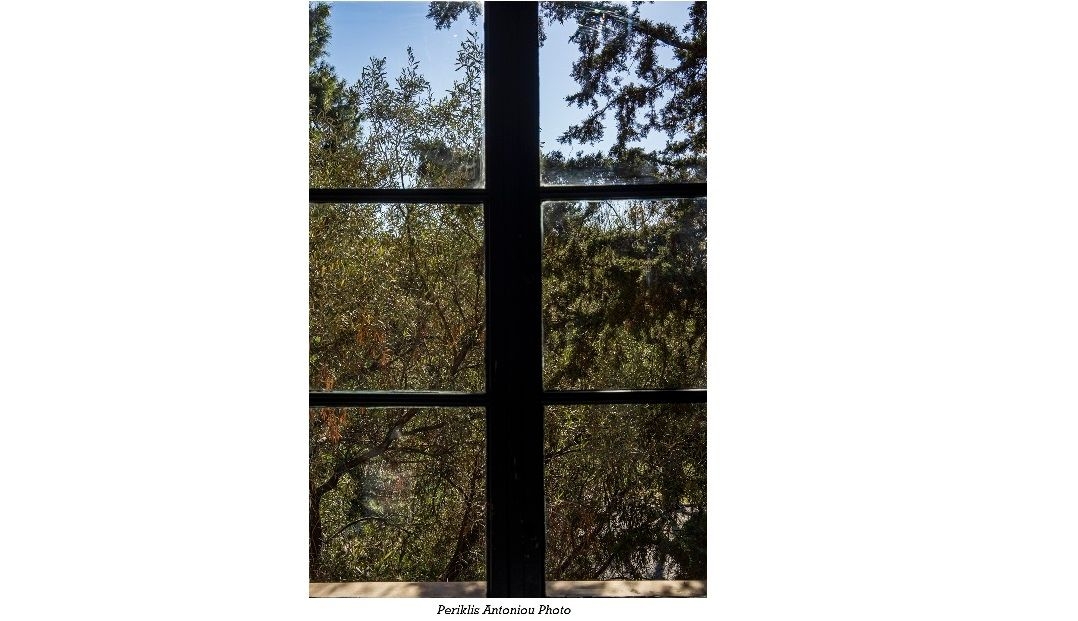How did 10 years go by? It seems like yesterday when Katia Charalabaki, after taking the baton from myself as President of the Board of HE.S.T.A.F.T.A., almost immediately proposed the creation of a journal, the Journal of our Association. All the members of the Board embraced the proposal with enthusiasm but also with some apprehension... how would we manage? We had in previous years discussed about a Newsletter, mainly of an informative nature and as a place to publish short texts, and despite the fact that it didn't seem too difficult, we never actually did it. However, a journal? One that would even be published twice a year? It seemed to us as a huge and ambitious undertaking. Indeed, we greatly felt the need for another space of expression for the systemic community in Greece, since the Journal Metalogos1, already circulating in print form since 2002, could not give space to everyone. In fact, we had the previous experience of editing a whole issue of Metalogos as members of HE.S.T.A.F.T.A., after a kind invitation by its Editorial Committee2. Thus, we had already gained a little editorial experience. Did this give us more conviction to take a much bigger step? Did Katia's intense writing activity and her writing talent give us a sense of security?
Either way, Katia's proposal took shape at a time when technological advances offered us something new and extremely facilitating: The use of the Internet as an environment and medium for publishing our Journal. It wouldn't have happened otherwise! First, the cost of a paper publication would have been prohibitive for the (poor) finances of the Association, especially in the time of the economic crisis that affected Greece. Second, the digital edition would be open access, at no financial cost, to HE.S.T.A.F.T.A. members and other readers. Third, there are no limitations of number of pages on the web space and it would not cost extra if we wanted to include artwork pictures, photographs or other material3. Fourth, access to the journal would be easy and immediate, not only to members of the Greek systemic community and other mental health professionals, but also to Greek colleagues abroad. Fifth, why then not offer the journal's material to a wider audience of systemic therapists and mental health professionals abroad, through the translation of each article into English, thus offering not only an abstract but also the full text?
These five steps finally brought to life what initially seemed like a dream: a digital, open access, peer-reviewed, bilingual journal entitled "Systemic Thinking & Psychotherapy", words that are contained in the name of HE.S.T.A.F.T.A., of which it is not only an organ, but also its identity, its manifesto.
The original spirit and philosophy of the Internet4 (to offer free access to knowledge, democratically, transcending state and language borders, interculturally, etc.) perfectly matched the goals and intentions of both the members of the Board and the members of the newly formed Editorial Committee, in which I have the honor and pleasure of participating5.
At least within the context of the International Systemic Community, Systemic Thinking & Psychotherapy was at that time the only completely digital journal published on the internet, with free access and in two languages.
We had (and continue to have) in our hands an amazing tool, which serves multiple purposes, among which I would like to mention: a) The capability to translate and publish in Greek, important articles by systemic therapists from other languages, offering the Greek systemic community access to them; b) The availability of a platform of expression and dialogue for Greek systemic therapists and thinkers, first of all for the members of the Association, but of course for others as well; c) The possibility of publishing texts referring to clinical experience and theoretical reflections that could not find any other way of expression, facilitating the circulation of knowledge that is not included in the strict academic criteria for publication, yet is no less important; d) The offer of a platform of expression to foreign colleagues who wished to connect with the Greek systemic community6.
All these aims were accomplished during the ten years of the Journal's existence. Not without effort, of course: I must emphasize that all this continues to be possible thanks mainly to the great dedication, perseverance, availability and constant vigilance of Katia Charalabaki, the Journal Editorial Manager, and Nikos Marketos, the Editorial Manager, together with the work of all of the members of the Editorial Committee.
Despite our imperfections, our clumsiness in exploiting the possibilities offered by technology, our not always apt choices of material (very rarely, I notice), I declare here my overall satisfaction for the progress of "our" journal and my gratitude to Katia, Nikos and the other members of the E.C., confident that our work will continue, with improvement and renewal. The journal is ultimately a framework of ongoing "challenge" to keep up-to-date and creative, to improve dialogue and reflection, not only regarding the systemic approach but also about psychotherapy in general, its practices and theoretical development. It also forces us to keep our "curiosity"7 alive, while, at the same time, it feeds us with new ideas, theories and approaches.
I conclude with a wish and a call to our younger colleagues, those who were born alongside digital technologies and manage them "spontaneously", who are used to fast information, horizontally, who "surf" the surfaces of knowledge: Do not be frightened by us, who have grown up in the past century, who have learned, as Alessandro Baricco wrote8, the deep immersion, the fatigue of study, the effort to improve our written language: If these elements keep you away and discourage you from participating in public dialogue, please know that we are also open, with genuine curiosity, to new ways of expression, to new models of writing, to new proposals and participations, to changes and mutations.
Even more so, as we wrote ten years ago, "in days when difficulties are many and unpredictable, demands at every level even greater, when we are all looking for new ways to deal with what we are living"9.
Footnotes
-
Metalogos was the first created systemic journal in Greece, by the Systemic Association of North Greece. ↩
-
See Metalogos, Volume 19, 2011. ↩
-
We are thankful to the artists who generously provided us the pictures of their work, among them the photographer Periklis Antoniou, the painter Paul Walker and the artist Loukia Alavanou. ↩
-
Regarding the use of digital technologies in systemic psychotherapy, training and supervision, see Borcsa, M. & Pomini, V.(2017).Editorial: Virtual relationships and systemic practices in the digital era.Contemporary Family Therapy, 39 (4): 239-248. ↩
-
The Members of the Editorial Committee are Katia Charalabaki, Nikos Marketos, Rozalia Giannaki, Kia Thanopoulou, Katerina Theodoraki, Athanasia Kati, Dimitris Kokkalis, Valeria Pomini, and Theodora Skali. ↩
-
As an example, see Marco Bianciardi’s paper in Volume 19, 2019. ↩
-
Cecchin, G. (1987). Hypothesizing, circularity, and neutrality revisited: An invitation to curiosity. Family Process, 26(4), 405-413. ↩
-
Baricco, A. (2006). I Barbari. Roma: Fandango ↩
-
From the Editorial, Systemic Thinking & Psychotherapy, Volume 1, 2012. ↩


